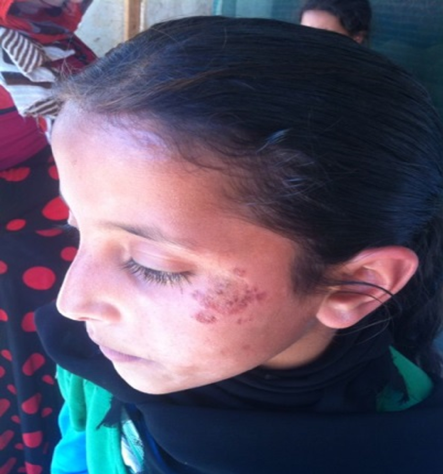Project Title: Lebanese and Syrian women for a better health, funded by the U.S. Embassy Small Grants Program.
Period: October 31, 2013 to September 30, 2014
The project aimed to provide reproductive sexual health and family planning services as well as increase the awareness of the Syrian refugee women on importance of seeking those services.
The LFPA signed an MOU with the municipality of Hawsh Harimi in West Bekaa to establish a reproductive sexual health clinic and equip it with all needed equipment and medicines and to be used by the LFPA as headquarters for its work in West Bekaa. A field coordinator was hired as well to be responsible for day to day activities.
20 women Syrian refugees & Lebanese from host community, were trained as “peer educators”. The LFPA believes that this is the best approach to provide information. The training agenda included the following topics: Safe mother hood, contraceptives, sexually transmitted infections (STIS), early marriage, early detection of cervical & breast cancer, as well as skills to transfer the knowledge to other women.
The peer educators implemented 120 awareness sessions in the villages of West Bekaa reaching 2544 women in the period of January – September 2014.
The topics discussed during the awareness: Contraceptives, Safe mother hood, Breast feeding, cervical cancer, Breast cancer, early marriage, sexually transmitted infections, Gender Based Violence, Nutrition during pregnancy. The participants in the awareness sessions were referred to the clinic in Hawsh Harimi to benefit from the free of charge services provided by the midwife.
The project produced as well two leaflets: the first one about STIs second one about pregnancy and safe motherhood.
A reproductive sexual health clinic was established and fully equipped within the municipality dispensary in Hawsh Harimi municipality to provide high quality reproductive sexual health services.
A mid wife was contracted by the LFPA provide services three days / week for beneficiaries accompanied by 4th year midwife students doing their internship.
LFPA obtained contraceptives and RSH medicines from the United Nations Population Fund (UNFPA) to provide them free for the beneficiaries.
The clinic opened its door on December 3, 2013, and in the period December 2013 to September 2014, 2473 women benefited from the services: the greater percentage of beneficiaries was in the reproductive age 16-45 years old. The beneficiaries not only benefited from the free of charge services but also received free supplements such as iron, folic acid, calcium and antibiotics.
The project achieved its goals and impacted the lives of the Syrian refugees women because it allowed them to access free of charge needed and vital services that that was not available to them.





